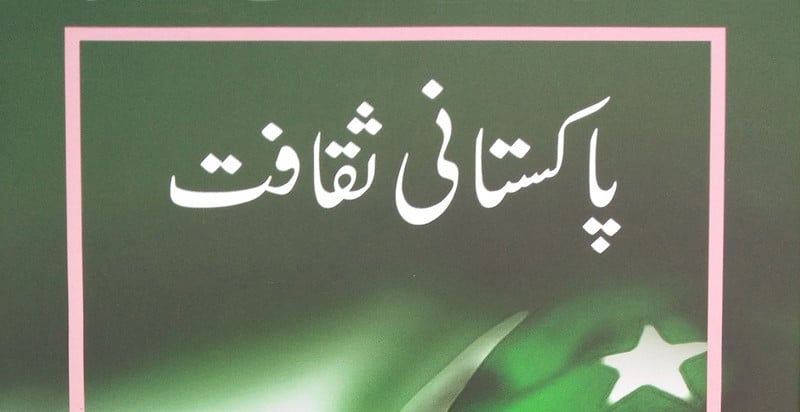
A recommended text book on Pakistani culture covers fundamental concepts of cultural studies in a critical fashion

The book, Pakistani Saqafat by Uxi Mufti can be read as a memoir of a cultural philosopher, which draws on his professional experiences to reflect on the contentious issues of Pakistani culture in its diverse shades. As the leading cultural bureaucrat for over three decades in Pakistan, the author’s reflections on cultural issues are shaped by his diverse experience. Far from being an armchair thinker, the author delves into academic debates on archeology, ethnography, folklore, globalisation, Islam and local culture as a man on the ground; a folklorist in the field.
The author writes not for the English-reading elite interested in cultural consumerism, but for the sons or the daughters of the soil who live and rejoice in their love for the indigenous culture. Because he is an avid collector of folktales, his writing also mimics the same mode of storytelling wherein he tells a story first before explaining a concept. The narrative also bears similarity with the Socratic dialogue, as the author starts with a simple question and cleverly weaves the validity claims of different arguments into discussion.
Addressing those who are at the periphery of academic knowledge, he uses dialogical reasoning which attracts a variety of readers -- from students of anthropology, history, to professionals working in the field of cultural heritage management and policy-makers. Pakistani Saqafat, thus, can be recommended as a text book on Pakistani culture, as it covers fundamental concepts of cultural studies in a critical fashion.
The chapter on archeology/ancient Pakistan, states the fundamentals of the archeological approach to culture, while offering a critique from an anthropological point of view based on field observations of the author. The critique of bureaucratic culture which is oblivious to the diversity of cultural heritage of the Pakistani society is incisive; the author attributes the loss of culture to official neglect. The museumisation of culture that took place under the British colonialism continues to arrest the freedom and growth of indigenous knowledge and culture. Divorced from the context of their knowledge base, cultural objects lose their vitality and are hung in museums as if frozen in time.
To address the official neglect of intangible heritage, the author raises a rhetorical question -- why are archeological museums filled with priceless objects of antiquity deserted in Pakistan, whereas melas and urs -- the traditional cultural festivals -- are thriving with people gathering there in huge numbers despite the threat posed by terrorism?
The chapter on universalism and cultural relativism deals with the contemporary challenges facing Pakistani society in a world increasingly torn apart by religious fundamentalism. He emphasises that the ideals of Islamic faith such as acceptance for cultural diversity -- reflected in the adoption of local cultural traditions by Muslims in different cultures and the religious plurality expressed through acknowledgement of all the religions of the Book in Quran -- are achieved in the West through a long and protracted struggle rooted in the idea of secularism, and against the dominance of Church over public life. Therefore, the author concludes that notwithstanding its manifest form, if secularism in principle preaches tolerance and equality for all religions, then we must hold on to secularism as one of our own ideals.
The chapters on cultural pluralism and social harmony are refreshingly original as the author highlights that what constitutes heritage for the West; is exhibited in the museums, and sold through galleries is a lived culture in Pakistani society. The astounding range of cultural diversity in Pakistan with a historical depth of more than five thousand years, expressed through multiple religious traditions, languages, poetry, costumes, crafts, architecture, music, musical instruments, and dance, among others constitutes a unique cultural asset -- a goldmine of cultural tourism that could have been be deployed to create a pluralistic and tolerant society.
The author’s life-long search for roots is not a romantic attachment with the past but is based on ground realities of the cotemporary world. He calls for culturally-integrated state policies where folk culture provides the basis for a national identity. He stresses the need to return to the villages -- not to civilise them, but to learn from them. It is by relearning our folkways and not suppressing them that we will be able to carve our national identity.
Pakistani Saqafat
Author: Uxi Mufti Publisher and Year of
Publication: Al-Faisal Nashran, Lahore. June, 2014.
Pages: 218
Price: Rs 500